Review of Paris, My Sweet, by Amy Thomas
A Year in the City of Light (and Dark Chocolate)
by Amy Thomas
Sourcebooks, 2012. 280 pages.
Starred Review
In 2008, Amy Thomas had a wonderful week’s vacation in Paris. Little did she know that would lead to bigger things.
That trip was the first time I was in Paris during the summer, and it was absolutely amazing. I loved that it was light out until after 10:00 p.m., giving me several extra hours to roam back-alley streets and sit by the Seine. I was excited to discover new neighborhoods like Bercy and Canal Saint-Martin and new “bistronomy” restaurants like Le Verre Volé and Le Comptoir du Relais. I got sucked into the semi-annual sales, les soldes, and hooked on Vélib’s, the public bike-sharing system.
And then there were all the chocolatiers.
By that time, I was just as obsessed with sweets as I was Paris. I had a column in Metro newspaper called “Sweet Freak” and a blog by the same name. I knew every bakery, dessert bar, gelateria, tea salon, and chocolatier in New York City. When I traveled, I built my itinerary around a town’s must-visit sweet spots.
So naturally during that week in Paris, I researched the city’s best chocolatiers, mapped out a circuit, and then Vélib’ed between eight of them. It was exhilarating and exhausting, not to mention decadent. It was a chocoholic’s dream ride. I wrote about my Tour du Chocolat for the New York Times, and it went on to become a top-ten travel story for the year. As I was secretly plotting a way to spend more time eating chocolate in Paris, the in-house recruiter of the ad agency where I worked casually walked into my office one day and asked if I wanted to move to Paris. I was getting transferred to write copy for the iconic fashion label Louis Vuitton. It all happened so suddenly, and seemed so magical, that I had to ask: was Paris my destiny or sheer force of will?
I guess it goes to show that you just never know where life will take you. You search for answers. You wonder what it all means. You stumble, and you soar. And, if you’re lucky, you make it to Paris for a while. Here’s what happened when I did.
Now, I love Paris. And I still remember exactly the taste of the caramels we bought at a chocolate shop there. So I was predisposed to love this book, and I did.
Amy Thomas took a sweet-lovers approach to Paris and to writing this book. Each chapter focuses on a different delicious concoction that can be found in Paris. She ends up each chapter telling where you can get them in Paris, but also where you can get something similar in New York City. She uses her knowledge of sweets in New York City to good effect, and then discovers the places in Paris.
Readers of this book now have a fabulous excuse to go back to Paris. I’ve got to try some of these! One thing’s for sure. The next time I go to Paris or New York City, I’m going to bring this book — or at least the addresses from it.
godiloveparis.blogspot.com
sourcebooks.com
Find this review on Sonderbooks at: www.sonderbooks.com/Nonfiction/paris_my_sweet.html
Disclosure: I am an Amazon Affiliate, and will earn a small percentage if you order a book on Amazon after clicking through from my site.
Source: This review is based on my own copy, which I got at an ALA conference and had signed by the author.
Disclaimer: I am a professional librarian, but I maintain my website and blogs on my own time. The views expressed are solely my own, and in no way represent the official views of my employer or of any committee or group of which I am part.
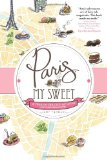
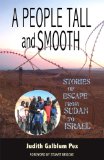
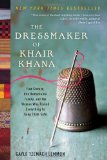

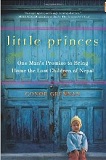
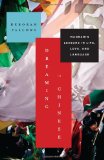
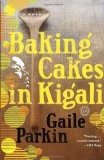
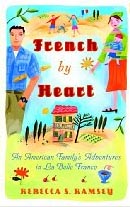 French by Heart
French by Heart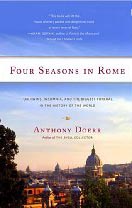 Four Seasons in Rome
Four Seasons in Rome